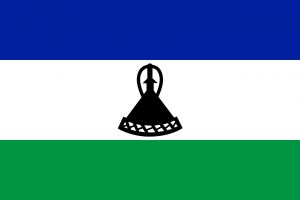Language/Southern-sotho/Vocabulary/Express-Surprise
Hi Southern Sotho learners! 😊
In this lesson, we'll focus on how to express surprise in Southern Sotho. Surprises can be pleasant or unpleasant, and they can happen anywhere: at work, school, home, or just in everyday conversations. Knowing how to express surprise allows you to show your reaction and contribute to the conversation. We'll also provide cultural information and interesting facts about Southern Sotho to better understand the language and its speakers. Are you ready to express your surprise? Let's get started!
Don't miss the chance to check out these pages as you wrap up this lesson: Animals & Feelings and Emotions.
Basic Phrases[edit | edit source]
When expressing surprise in Southern Sotho, there are several phrases you can use depending on the situation. Here are some basic phrases to get you started:
| Southern Sotho | Pronunciation | English |
|---|---|---|
| Yoh! | yo! | Wow! |
| Gape! | ga-pe! | Indeed! |
| Sebete sa nnete. | se-be-te sa nne-te | This is a true statement. |
| Ka nnete? | ka nne-te? | Really? |
| Nka se ke ntse ke sa lo nya ke utlwile. | nka se ke ntse ke sa lo nya ke utlwi-le | I had never heard of it before. |
| Heita! | hei-ta! | Hey! |
| O se ke wa tshwara morao? | o se ke wa tshwa-ra mo-ra-o? | Did you wake up on the wrong side of the bed? |
| Aowa! | a-o-wa! | No way! |
Use these phrases to express surprise in everyday conversations about anything from surprising news to unexpected events.
Here are some example conversations:
- Person 1: Yoh! U be kea loya. (Wow! You look beautiful.)
- Person 2: Ke hona joalo. (Thank you.)
- Person 1: Gape, ke tla hlola mosebetsi eo. (Indeed, I will do that job.)
- Person 2: Kea leboha. (Thank you.)
- Person 1: Ka nnete? U fumane mosebetsi? (Really? Did you get the job?)
- Person 2: Ee, ke fumane ka pelo eaka. (Yes, I got it with my heart.)
Cultural Notes[edit | edit source]
Southern Sotho people are proud of their culture and traditions, and these can be seen in their language usage. Southern Sotho culture is known for its music, dance, and clothing. The Basotho blanket, for example, is a traditional item of clothing worn by the Sotho people. It is often displayed in bright colors and eye-catching designs. Music and dance are also celebrated, with many traditional songs and dances still performed today.
Southern Sotho culture also emphasizes respect, especially for elders. This is reflected in the use of formal language when speaking to elders or those in positions of authority. In everyday conversations, however, Southern Sotho can be very informal and even humorous.
Interesting Facts[edit | edit source]
Southern Sotho is one of the official languages of Lesotho, a small country surrounded by South Africa. It is also spoken in some parts of South Africa. Approximately 7 million people speak the language, and it is one of the many Bantu languages in Southern Africa.
The Southern Sotho language has a standardized spelling system, but there are also many variations in pronunciation and vocabulary depending on the region. In addition, Southern Sotho has borrowed words from other languages, including English and Afrikaans.
Practice and Improve[edit | edit source]
Now that you've learned some Southern Sotho phrases to express surprise, it's time to practice! Talk to native speakers of Southern Sotho to improve your pronunciation and learn new phrases. You can find native speakers on Polyglot Club. Use this opportunity to ask them any questions and practice your skills.
You can also improve your Southern Sotho vocabulary by visiting the Vocabulary section of the Polyglot Club website.
Congratulations, you've completed the lesson on how to express surprise in Southern Sotho. We hope you enjoyed learning something new about this beautiful language and its culture. Until the next lesson, keep practicing and learning!
➡ If you have any questions, please ask them in the comments section below.
➡ Feel free to edit this wiki page if you think it can be improved. 😎
Sources[edit | edit source]
Other Lessons[edit | edit source]
- Fruits
- Colors
- Geography
- How to Say Hello and Greetings
- Health
- Food
- Feelings and Emotions
- Animals
- Drinks

